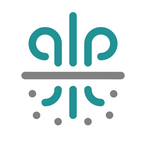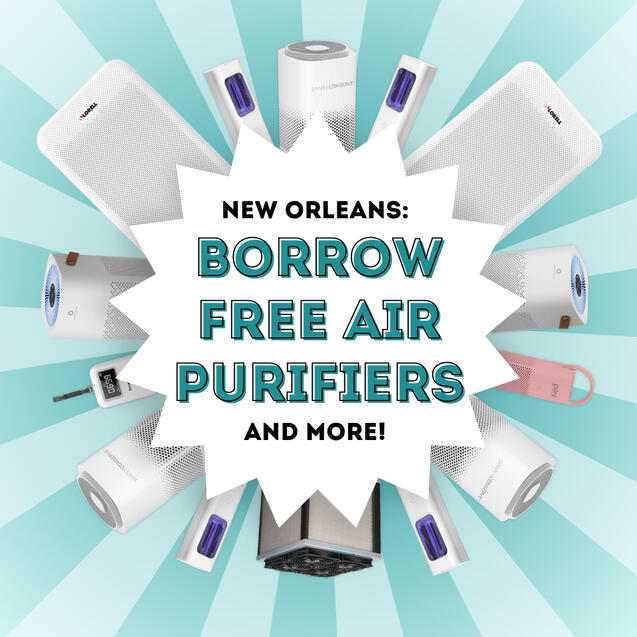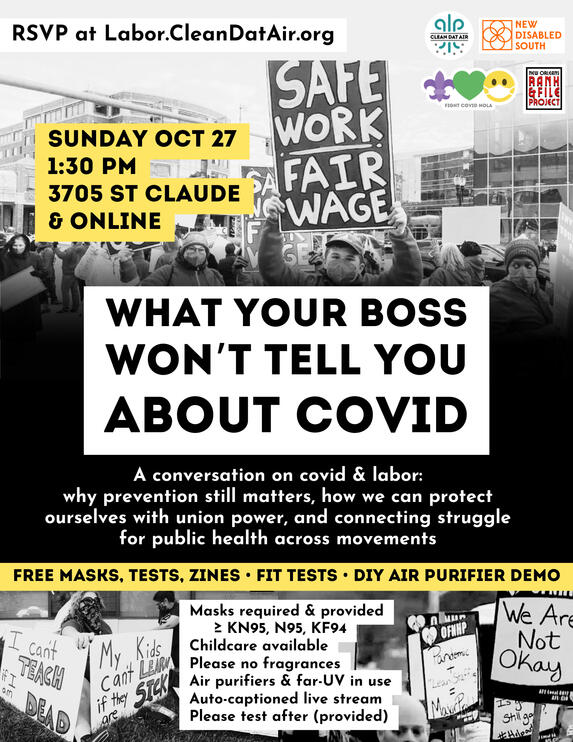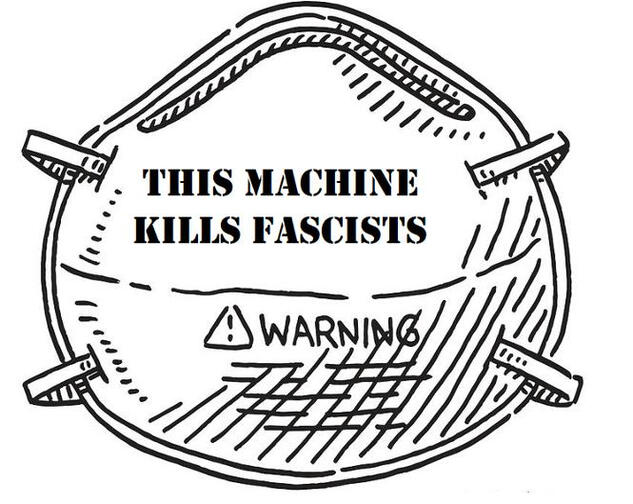
Clean Dat Air
A free lending library of air purifiers and other indoor air quality gear, for safer, more accessible spaces in New Orleans/Bulbancha.
Air purifiers can mitigate airborne hazards like germs, pollution, wildfire smoke, mold, and allergens. They can reduce the spread of viruses like covid, in combination with masking, isolating when sick, and other protections.
Gear Guide
Learn about the available clean air tools.Request Form
Arrange to borrow tools for appointments, events, home quarantine, and more. Bulk masks also available from Fight Covid NOLA.Donate
Help us maintain our library and buy additional tools.Fight Covid NOLA
Free masks, tests, zines, and other resources.
- Air Purifiers - Far UV Devices - Disposable Respirators - Information - Support -
In collaboration with Fight Covid NOLA
What Your Boss Won't Tell You About Covid
Check back to Labor.CleanDatAir.org for the live stream link.
Accessibility:
In person:
- Masks required and provided for all (> 2 years old) who can wear them.* KN95, N95, KF94, or higher. Many sizes & styles available
- Childcare provided
- Please don't wear fragrances
- Air purifiers & far-UVC in use, at or above ASHRAE standards*
- Please test afterwards, and report results at AfterParty19. We will have free rapid home tests (RATs). Please set aside 1 box to test on November 1st and November 3rd, if possible.
- Free street parking* In meeting room & attached restroom. Optional rear entrance/exit to bypass the lobby.
Unfortunately, the wheelchair lift is out of service.Online:
- Auto-captions provided. The recording will have corrected captions.
Calendar Invite Links:
About our speakers:
Matt Olson is a mixed methods researcher, political educator, and policy analyst. He is Senior Researcher at the New Orleans Workers' Center for Racial Justice where he supports campaigns centered on changing conditions of low-wage Black and immigrant workers in New Orleans. His formal education is in journalism, history and cultural anthropology alongside a crucial political formation in post-Katrina New Orleans Right to Return movements, anti-police brutality community organizing, and grassroots infrastructure building in rural Haiti. He recently led a collaborative history project on Black labor organizing in New Orleans called Don't Stand Alone, currently on exhibit at the NO Public Library Main Branch. At the Workers' Center, he conducted an extensive survey with New Orleans residents looking at how COVID-19 pandemic impacted their health and working conditions, especially for low-wage workers of color, alongside NOWCRJ's Essential Worker campaign.
Dr. Mike Hoerger is an international expert in COVID forecasting and mitigation. He is an Associate Professor of Psychology, Psychiatry, and Oncology at Tulane University, Director of the Population Health Sciences and Disparities Program at the Tulane Cancer Center, and Director of the Pandemic Mitigation Collaborative. He has degrees in clinical psychology, medical research, and financial analytics. Mike runs the most-accessed U.S. COVID forecasting dashboard and has led and collaborated on many projects related to improving COVID safety in the community, in healthcare, in schools, and in the service industry. He previously served as an organizer and founding president for a teacher's union, AFL-CIO/AFT Local #06522.Lila Zucker (she/her) serves as New Disabled South’s Organizing Director, bringing more than 15 years of experience as an organizer, trainer and movement builder to the role. As a queer, disabled organizer, Lila has spent her career building solidarity across intersectional movements in labor, voting and social justice spaces. Union organizing runs deep in Lila’s family, and Lila began organizing within the labor movement in high school. Lila’s deep belief in working towards our collective liberation through cross-movement and cross-disability solidarity guides all of her work. Most recently, she worked as Fair Fight Action’s Deputy Organizing Director, where she oversaw the organization’s voter education and turnout efforts. She earned her B.A. in Sociology with a minor in Labor Studies from the University of Washington.Xaya Lovelle (facilitator, she/her) is a disability justice & mutual aid organizer, an adult performer, and a high-risk, disabled New Orleans local with deep roots in the community. She has been a rank-and-file member of multiple performer advocacy organizations, in which she has pushed for mutual aid, racial justice, science-informed testing standards, as well as proactive covid protections. She is passionate about the intersection of disability justice and sex worker power. For decades, the US adult film industry has been a leader in infectious disease prevention. However, Xaya has noted that compliance to standards has been negatively affected by backslides in public health. She has been on hiatus since 2022 to protect her health.Additional speakers TBA.
Resources and Information:
- This Machine Kills Eugenicists by Major LelankaFree supplies
- Free masks in New Orleans (pickup or delivery)- Borrow free air purifiers in New Orleans- Find resources outside of New Orleans (Google Map)Safety Supplies:- Low-cost buying guide for masks, tests, and telehealth appointments for treatment.- Bulk buying guide for masks and rapid tests. (Google doc)- Introduction to types of masks (Google doc)- How to build a DIY air purifier (PDF)- Recommended masks, air purifiers, and rapid tests. (PDF)Track covid:
- PMC weekly report and forecast
This Machine Kills Eugenicists
By Major Lelanka
Up until 2020 I was pretty complacent as a union activist. I was a low-ranking union officer known as a steward for five years. It wasn't until the pandemic hit that I really began to take my duties seriously. This was in a conservative white collar bargaining unit under the Service Employees International Union (SEIU). From the beginning it was clear that library management had no intention of taking any steps to protect us unless we forced them to. I came to find that union leadership fought us harder than mangement did. Indeed, for all intents and purposes, they were one and the same. My supervisor sat on the union executive board and told me I should look for work elsewhere when I pushed back, right before getting me suspended.I had to learn the ins and outs of labor law very quickly, because unfortunately I had badly neglected the need to have strong relationships with my coworkers. Without the power to flex our collective muscle, all I had to defend my wellbeing was the union contract and my wits. For the first year of the pandemic, day-in and day-out, I went toe-to-toe with both the union leadership and management to protect myself and others from hasty reopening plans, threats and retaliation. My mental health declined significantly.I was about to expose the collusion between SEIU Local 760 and library management to silence us, when I landed a better job and decided to leave quietly rather than jeopardize my new position. The last year I worked in that library, the bargaining unit was forced to start functioning in a more transparent and engaging manner, and is now stronger than it's been in decades. I learned a great deal about winning grievances, walking the line between agitation and termination, and direct action on the job.Shortly after leaving that library, I and another coworker were fired from my nights-and-weekends job of nine years. It was a movie theater that, like the library, had also refused to close at the beginning of the pandemic, until the governor forced them to. Little did management know I had already begun trying to unionize the theater and we had planned on delivering a demand letter as a group – a tactic known as a “march on the boss” – just as the shutdown began. But in the months following reopening, management's old habits of verbal abuse and disregard for health and safety predictably re-emerged.With a new batch of coworkers to organize, the few of us who remained from before the shutdown got back to it, and wrote a new petition together, demanding a mask requirement in the summer of 2021. This was intended as a first step toward unionizing, but unfortunately due to the urgency of an imminent risk to our health, we did not have the time to properly prepare ourselves for what we would do if any of us were fired. The campaign quickly evaporated and I moved on. My firing was part of a national wave of generalized attacks against the public itself, both our health as well as our political freedoms. It should be noted that rapid returns to business as usual occurred in the context of the police state desperately trying to get people out of the streets in the months following the murder of George Floyd. As always, capitalist exploitation and white supremacist policing operate in tandem.I took some solace in the fact that the bad publicity had shamed theater management into a short-lived vaccination card check policy. Because they were now short-staffed due to the firings and new covid infections among staff, they were also forced to cancel two superspreader events that followed my termination. We had been talking to the Communications Workers of American Local 1298 and the United Auto Workers Local 2110, but when push came to shove, they turned their backs on us. I was left to picket with little organizational support beyond that of the Industrial Workers of the World, the IWW.At my new library job I became a member of AFSCME (pronounced “AF-smee”) Local 1716. Unfortunately the head of our bargaining unit, like my old one, had also been bought-off by management, and did everything he could to marginalize the concerns of those of us who were against lifting the mask requirement. In December 2021 I was infected by covid for the first time, most likely at work, while still using the cloth masks that I soon learned were insufficient.While my impact during the first couple years of the pandemic was modest, the issue of health and safety galvanized a new generation of union militancy. Although the national leadership of the American Federation of Teachers talked big about striking against unsafe reopening policies, it was only the rank and file in such locals as the Chicago Teachers Union that actually took such steps. Starbucks Workers United arose from young workers who could see in stark terms that their lives were only worth between 10 and 14 dollars per hour. The Amazon Labor Union was born after workers were fired under the same circumstances as me. We have them all to thank for the union revival we are still enjoying today.And yet despite the corporate-led charge that led to the erosion of basic public health measures following the election of Biden, the labor movement has said and done next to nothing to address the pandemic since. Given our union leaders' willingness to sacrifice virtually anything at the altar of the the Democratic Party in exchange for a marginally better National Labor Relations Board, it should come as no surprise that the pandemic ceased to be a concern once the election was over. Despite a massive campaign of harassment and bullying aimed at stopping workers from masking, organized labor's silence has been deafening. Indeed, how many pro-union people will walk into someone else's workplace unmasked without a second thought, assuming that the person behind the counter has made a free and uncoerced decision to put themselves at risk?The tragedy of this complicity is that organized labor is the only force that has the power to finally end the pandemic. From the beginning, the global spread of covid stemmed from a refusal to meaningfully protect workers in ways that might “hurt” the economy. In a city like New Orleans, businesses focused mainly on packing as many bodies into a single space as possible to sell food and liquor are perhaps the central driving force behind unchecked viral spread. I believe the pandemic will end when those of us who work in entertainment, hospitality and the service sector refuse service to anyone who walks into our workplaces without a high quality mask, because workers' only real power is in direct action. We all have the duty to make that refusal easier, not harder, and stop spreading dangerous pathogens in other peoples' workplaces.Contrary to the accusation leveled against me by an SEIU staffer in 2020, I don't expect the union to do everything for me. Organizing is hard and complicated work, which is why those of us who are union people, and who are covid conscious, must articulate ourselves clearly and patiently to our coworkers. One-way masking was never sufficient, and now that mask bans are being passed across the country, we no longer have the option of simply being the only weirdo on the job still masking.I'm sometimes asked if I'm immunocompromised, and I keep forgetting to tell people that everyone who's been infected has had their immune system diminished to one degree or another. As a union organizer I operate with the knowledge that what I'm helping to build will one day function largely as disabled workers' organizations. The sooner we learn from the disabled rights movement that no one is disposable, the sooner we can rise to meet the challenge of a mass disabling event.A big part of the reason I helped organize this talk is because we need our coworkers and comrades to help us defeat the current wave of mask bans and break the stigma, just as was done with condoms at the height of the AIDS crisis. Without the cover provided by standing in a sea of masked faces, the state is already singling us out for persecution when we refuse to succumb to forced infection, whether at work, or when we protest in the streets. They will not draw a distinction between good protesters and bad protesters, or respectable union leaders and “hysterical” agitators. The rise of eugenics helped usher in 20th century fascism, in no small part leading to the mass euthanization of people disabled by the influenza pandemic following World War 1. The only people who benefit from the disposability of working class people, and disabled people in particular, are the state and their capitalist masters. We should not help them.


